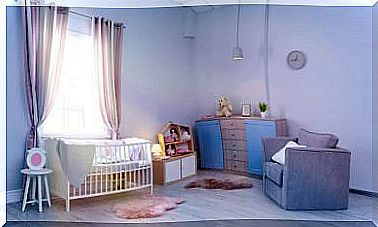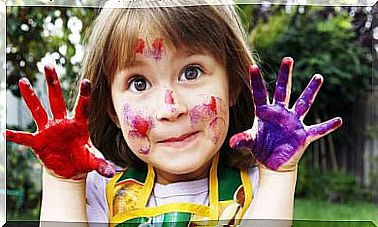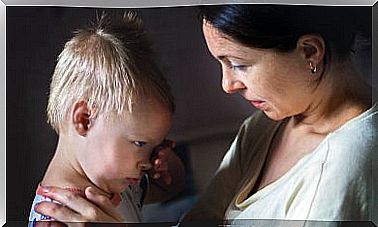Memory And Creativity, Are They Compatible?
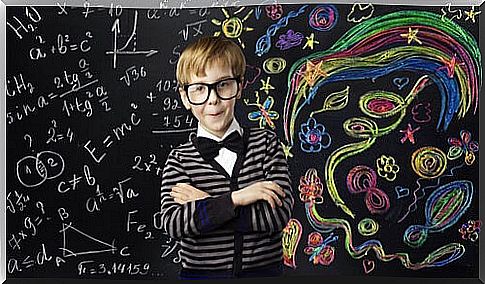
While one is the representation of freedom and the ability to invent, the other is just the opposite: reasoning and the structuring of knowledge. Are memory and creativity totally antagonistic terms or can they coexist in a child?
Memory is a characteristic of those people with a certain level of cognitive development. It can be improved by exercises methodically planned for that purpose and there are different types. We have short-term memory, long-term memory, auditory, visual and selective memory, among others.
In fact, it involves such complex connections between areas of the brain that it often creates traps that deceive our perception. Without a doubt, it is a wonderful process that can only be expected from the genius that is the human mind.
At the other extreme, creativity, closely linked to “free” people. Those who think without structures and who are capable of inventing from scratch itself. It is so opposed to the idea of planning and perseverance that even creative people are often called lazy.
Is it an indisputable truth that memory and creativity are polar opposites?
Memory and creativity complement each other
It is rash to establish verdicts that work for everyone equally. The mind is so vast and wonderful that it allows an infinite combination of personalities, abilities, and factors that influence them.
However, it is generally related to intelligent people with abilities such as memory, the ability to learn and the application of logic. On the other hand, young creatives are often seen as messy, untidy, and even incapable of complex logical reasoning.
This view is not entirely true. In fact, lately there have been published studies that affirm that intelligent and creative people have many characteristics in common. This would mean, then, that memory and creativity are not so opposites after all.
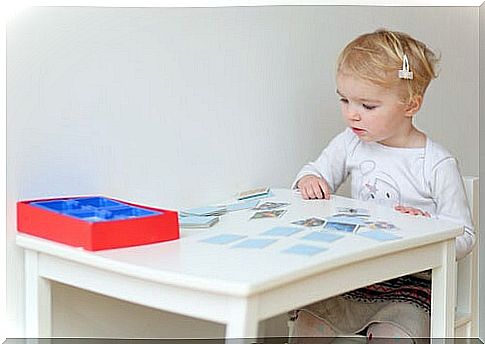
What characteristics are we referring to? These are the main ones:
1.- Preference for solitude
According to research carried out by the Sociology department of the London School of Economics, intelligent children were happier and more comfortable being alone, without having to collaborate or share with others. This is because they tend to be very reflective and their ability to concentrate increases in solitude.
In the case of young creatives, something similar happens. Nobody imagines an artist asking for opinions on how to draw a landscape or a composer asking for ideas to make a song.
These are individual processes, generally conceived in the genius himself. Creative children focus on their world to express their ideas in the best way. Loneliness — which is not the same as isolation — is your ally.
2.- Messy and night owls
The usual image of a genius or an artist is that of this person working in a messy room. In truth, this is not far from the truth.
Intelligent and creative people share the peculiar trait that their abilities are enhanced overnight. In addition, they tend to be somewhat unpunctual and do not care too much about order: their focus is the project they work on.
3.- Greater distraction
Perhaps related to the above, children with greater logical abilities tend to be more easily distracted. The same goes for the most creative: the “waves” of inspiration can be accompanied by moments of mental “emptiness”.
4.- Good sense of humor
Professor Sarnoff A. Mednick, a leading psychologist in the United States, and his colleague Emanuel Jauk, from the University of Graz, concluded that intelligent people have a better sense of humor.
This is because they are more witty and have a good understanding of the context to make relevant comments. Memory helps to remember appropriate phrases for each situation, while creativity allows them to improvise when necessary.
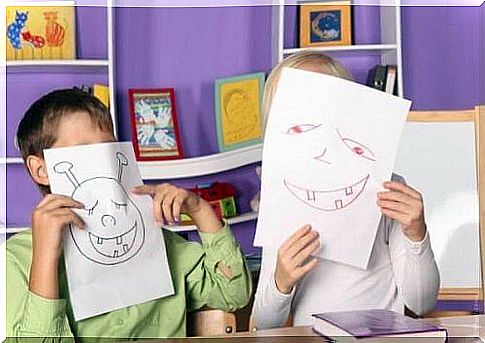
Differences between smart kids and creative kids
Among the differences that can be noted between these two types of personalities, the predisposition of intelligent children for those subjects that require applying complex processes to reach a result stands out. For example, mathematics, geometry, or natural science.
In contrast, the most creative children excel in areas where their ability to express themselves can flourish without strings attached. Music, art and literature are the main ones.
Factors that influence a child’s development
In conclusion, what determines the characteristics of a child? Are memory and creativity exclusively determined by your genetics?
To a large extent yes. However, there are also other components that influence its formation:
- Family factors: context in which it is formed and the education in values it receives.
- Socio-economic condition: the education received, the materials available and the level of nutrition and recreation come into play here.
- Culture: In certain communities some skills are emphasized more than others.
- Emotional and psychological intelligence: the balance in these areas is very important so that they can enhance their skills appropriately.
That a child excels in one of the two areas does not mean that he does not serve the other. Both are equally important to your life. In fact, companies today focus on the search for capable people and people with greater creativity almost equally.
As a parent, then, you must ensure that your child has the tools he needs to explore and develop his potential. Memory and creativity are elementary qualities for this purpose.


